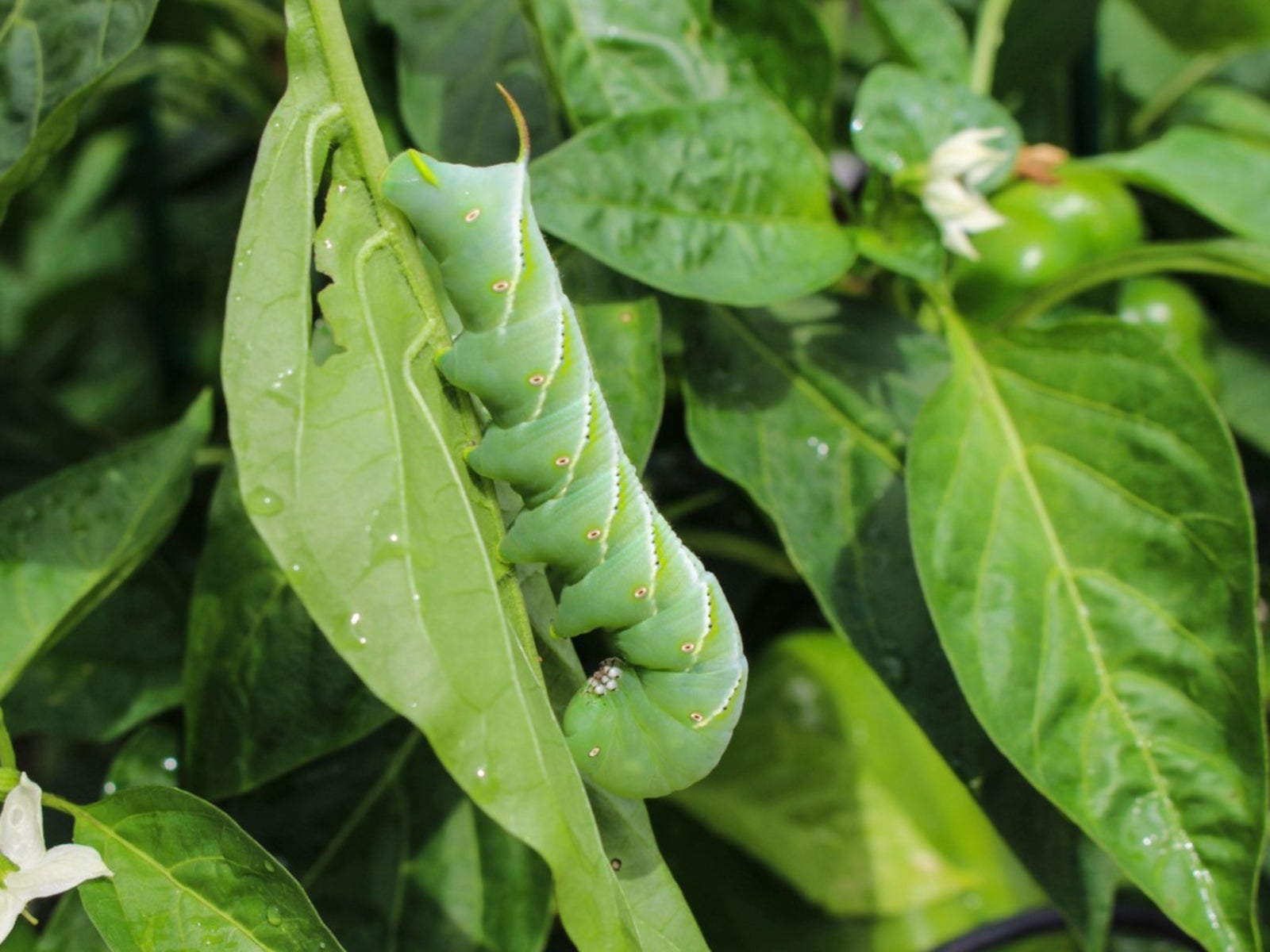Common Pests In Vegetable Gardens - Tips On Treating Vegetable Pests

Vegetable gardeners have a lot of enemies when it comes to raising beautiful and tasty vegetables: not enough sunlight, drought, birds, and other wildlife. The worst foe for home gardeners though may be vegetable garden pests. These insects feed on healthy vegetable plants and may even move on to another type of plant once they go through a metamorphosis, or change. Treating vegetable pests involves a number of steps, but the simplest way to deal with the problem is to prevent them from overtaking your garden in the first place.
Common Pests in Vegetable Gardens
The earliest pests affecting vegetable plants are the larvae or worms that are the second stage in an insect's life. Many of these look like colorful caterpillars, but they are anything but friendly. These pests can munch through an entire row of plants in a matter of days, laying waste to your carefully planted crops.
- Probably the most well-known of these pests is the tomato hornworm. These distinctive large worms will eat holes in leaves and tomatoes, ruining an entire crop.
- The corn silkworm works its way down from the silk at the top of each ear into the corn itself, chewing through the kernels and making each ear unusable.
- Cutworms do the most damage to tiny seedlings just as you plant them. These pests cut the stem clear through right at soil level, killing the entire plant.
- The squash vine borer tunnels its way into squash and pumpkin vines right at the base, causing the entire plant to wilt and die.
Other types of garden pests are:
- Japanese beetles
- striped cucumber beetle
- Colorado potato beetle
- cabbage maggot
- grasshoppers
- dozens of other living pests
Each plant you grow will have its own group of pests in vegetable gardens.
Tips on Treating Vegetable Pests
Keeping pests out of vegetable gardens is a season-long chore, but you can make your job much easier by setting your garden up for success. Make the soil fertile and healthy with well-rotted compost. This will also allow excess moisture to drain away from vulnerable roots. Check through seed catalogs to find crop varieties that resist common pests from your area. Check for the normal hatching time for the worst pests in your area and delay planting your crops for about two weeks. This will disrupt the insects' feeding schedules and may prevent the worst of the damage. Encourage or even purchase beneficial insects and animals that prey on common pests. Ladybugs and beneficial wasps, for instance, will kill off many garden pests. If there are lizards or toads in your area, try to encourage them to live in the garden by putting out small enclosures they can use for a safe home. Keep away weeds, dead plants, and any garbage that may appear in the garden area. A clean garden is a healthy garden, which makes it harder for pests to take hold.
Sign up for the Gardening Know How newsletter today and receive a free copy of our e-book "How to Grow Delicious Tomatoes".